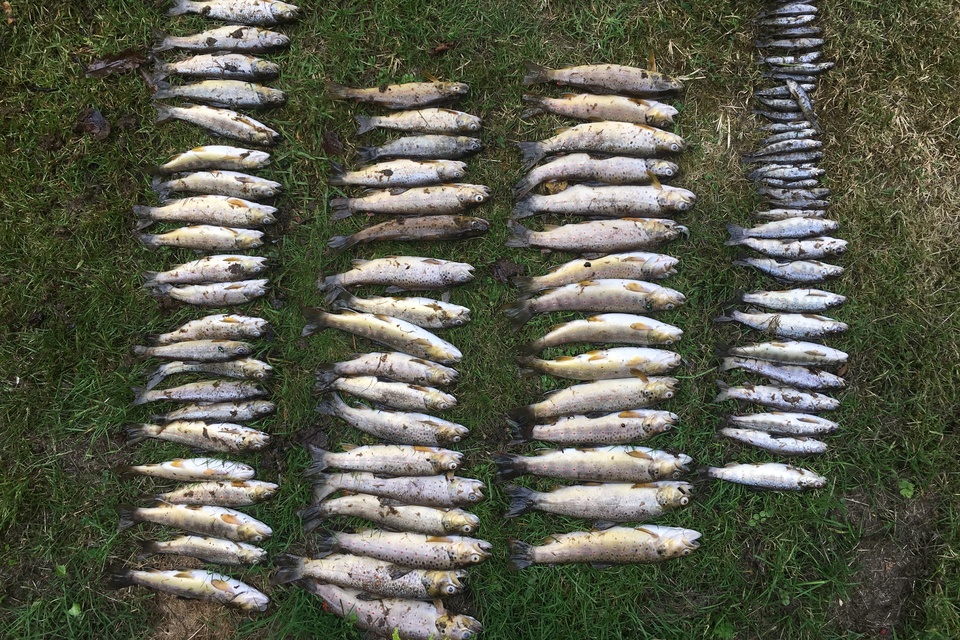On Wednesday 31 July 2019, Environment Agency Officers were called to a fish kill on the River Mole near South Molton.
They recorded more than 9,000 dead fish, including salmon, brown trout, sea trout, bullheads, stone loach and minnows, in the 4.7 kilometre stretch of the Mole and estimated that the total number of dead fish was around 15,600.
Whole populations of salmonids, from mature adults to fry, were wiped out.
The incident came from liquid digestate, from an anaerobic digester business, leaking into the river and was one of the worst fish kill incidents in the South West. Unsurprisingly, it ended up in court.
The company that caused the pollution incident has been fined £2,000 and ordered to pay £9,836 in costs.
That’s just under 13p per fish…
What sort of message does this send to businesses around the country, let alone society as a whole?
Our rivers are the lifeblood of our societies. Since the dawn of time society has centred their communities around water as it was vital for their survival, but we have forgotten this.
Water now comes from the tap and we have become so disconnected from our rivers that the decimation of the local river life and the very water we depend upon attracts such a pitiful fine.
Ultimately, we live on a small island with 60 million people and we ask a lot of our landscape, so pollution will always occur but we must get better at reflecting the true costs of damage under the polluter pays principle.
Additionally, that damage needs to be rectified so any fine needs to be paid directly into restoring the river, not to Treasury.
Enforcement Undertakings have been used, where there is not a case for negligence, to avoid court and the polluter makes an offer to restore the river. These have been used to good effect in the past as the money is spent locally and is often greater than the cost of prosecution but they are not a panacea.
They are often not communicated adequately to the community on why there wasn’t a case for negligence but also it means pollution incidents feel like they are being swept under the carpet as the polluter doesn’t see their ‘day in court’.
Additionally, the figures for both Enforcement Undertakings and Fines are based on the ability to pay, not the environmental damage created, so often bare no reflection to the physical damage caused.
This incident has shown that both prosecutions and Enforcement Undertakings are deeply flawed processes as we constantly undervalue our environment, especially our rivers.
The message seems to be that pollution does pay and there is limited disincentive to pollute other than enlightened self-interest.
This needs to change if we are ever going to have clean rivers.
Read the Environment Agency summary at:
Dr Laurence Couldrick – CEO Westcountry Rivers Trust


This incident highlights the ignorance the population still has for the environment. We need legislation to be stronger, harder and more onerous to the businesses which that have a pathway to a watercourse.